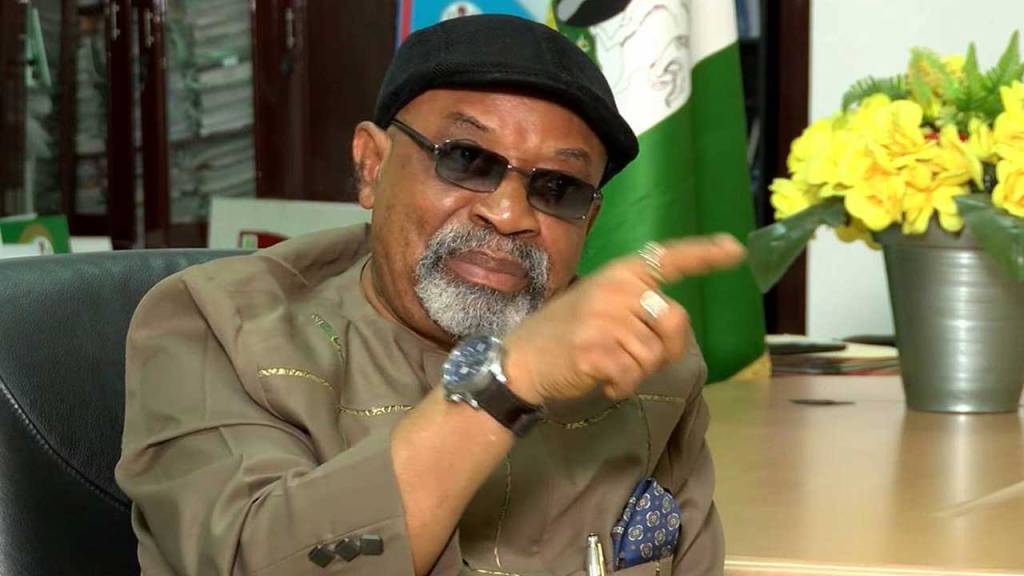On the 29th of July, the UK government and Kenya signed a new programme in which unemployed nurses and health workers from Kenya would have a new chance to work in the UK.
UK Health Secretary, Sajid Javid, and Kenya’s Cabinet Secretary for Labour Cooperation, Simon Chelugui, signed the agreement on Kenyan recruitment into the UK’s National Health Service. It came on the third day of President Kenyatta’s visit to London, on a tour of the Royal College of Physicians in London. The special programme came at the request of the Government of Kenya to channel nurses currently unemployed into jobs.
Worldwide, the health worker profession relies on migrants. But policy often restricts their movement. As of January 2020, Nigeria ranked as the sixth highest in terms of the number of employees working in the NHS in the UK with 8241 health workers. This number has drastically increased with even more doctors, nurses, pharmacists, physiotherapists, etc. leaving the country in droves in the wake of COVID-19. The UK and the US, in a bid to fill the gap that was created by the pandemic, have relaxed their immigration laws regarding health workers. For example, the UK health and care visa is reserved for those with a job offer from the NHS, any organisation that provides medical services to the NHS or organisations that offer adult social care. Some specialities in the UK that lack specialists (consultants) in their field have since relaxed their licencing exams and now employ consultants affiliated to the West African College of Physicians (WACP). This is all in a bid to balance the doctor-patient ratio in their country.
Formerly, the United States Medical Licencing Exams (USMLE) used to be in three steps with sub-steps in between. However, recently, the board has announced that the second step 2CS (clinical skills) has been waived for doctors. This has significantly reduced the stress of the exams and made life significantly easier for doctors intending to migrate to the US.
As for Saudi Arabia, only God will bless them. They recognised the value of Nigerian health workers ages ago and made the process of migration to their country unbelievable simple. Without writing any form of licensing exams, Nurses and doctors are able to apply through a recruiting firm, attend an interview where they can negotiate their salary based on their skills and before you can say ‘Muhammadu Buhari’ an employment letter is offered. The agency pays for the flight tickets of the health worker and spouse while employment by the Saudi government usually includes accommodation and education for two children. The recruitment firm is then paid the equivalent of one month’s salary on reaching the country. I know of colleagues who were able to negotiate their salary up to the tune of $5,000 per month because of their amazing clinical skills.
Where am I going with this?
It is a new month and yet again there is another doctor’s strike. While developed countries are running helter-skelter trying to woo doctors from developing countries to fill the gap in their health care system, Nigeria is chewing her own doctors and spitting them out. According to statistics, with Nigeria’s population at about 200 million, the ratio of doctor per patient remains 1:5,000 as against the World Health Organisation’s (WHO) recommendation of 1:600, which poses severe risk on the health of the populace as health indicators may continue to decline and get worse.
It is an open secret that healthcare in Nigeria is a joke. Regrettably, Nigeria with an estimated total of 23,640 health facilities operated via a three-tiered governance structure, is ranked 187th by the World Health Organization (WHO) amongst 195 member states on health issues. It is embarrassing really and as a doctor, I cannot tell you that sometimes I do not want to bury my head in shame.
But instead of investing in our greatest potential which is human resources, we continue to drive them away with harsh working conditions and bad policies. Tell me, how does one explain, that of all the promises government made when the previous strike by resident doctors was called off, none has been fulfilled? In fact, not only have they not been executed, more nonsensical laws are gradually being implemented so much so that even the MDCAN (Medical and Dental Consultants Association of Nigeria), who hardly ever embark on an industrial action are contemplating going on a strike of theirs. The new MDCN policy has made the compulsory housemanship (internship) year a very difficult one and now, doctors are leaving the country even before doing their housemanship!
Three months ago, a classmate of mine revealed that fifty doctors arrived from Delta state at the primary health care centre he works in a rural province in Saudi Arabia in one month alone. 50! Pray tell how many doctors do we have in this country that we can afford to let them go like this? Yet instead of addressing the core issues, FG insists on putting on a Nollywood drama, thereby mortgaging the healthcare system of this country.
Let me tell you the consequences of this Brain Drain.
Already, the number of specialists to patient ratio is abysmally low. Resident doctors are doctors who are in training to become specialists. Typically, it takes another five to six years, after medical school, for a doctor to specialise in a chosen specialty. What this means is that all the doctors currently on strike are those who will be the future Cardiologists, Orthopaedic surgeons, Psychiatrists, etc. in Nigeria. When the system frustrates them, they leave for greener pastures, making an already wide gap, even wider. So, for example, when an ordinary Nigerian who lives in a village somewhere in Delta has a bad heart and requires a procedure to put a stent in his heart, he will not have access to someone who can. And if by some miracle he is able to meet a cardiologist who will perform the surgery, he will certainly not be able to afford it. Because of the law of demand and supply. The less cardiologists there are, the more the demand for them and because competition is low, their services will be frightfully expensive.
The scary thing about being human is that we are powerless when it comes to health. No one knows when a health emergency will arise. That Myocardial Infarction (heart attack) is not going to tell you when it is going to come. Nor will that abdominal emergency send you an email. So, if there are no appropriately qualified doctors to treat the emergency, chances are the patient will end up six feet under the ground or at the very least incapacitated for life.
And this patient could be me, or you, or Ngige.
Unless of course you are among the very few Nigerians who have access to an air ambulance that can transport you to the UK at a cost of almost ten million naira immediately. And even then, bear in mind that the current guidelines for the treatment of ST-segment elevation myocardial infarction (STEMI) recommend a door-to-balloon time (DBT) of ≤ 90 min for patients undergoing primary percutaneous coronary intervention. In plain English, if you have an MI (heart attack) today, and require the PCI procedure, it is best done in less than 90 minutes from the time of the attack.
In the Nigerian context, quite simply, you are a goner.
This is not a time to play politics and economics. Where health and education are concerned, no serious nation can afford to play Russian roulette with its citizens. Its consequences are dire. Let those who have the government’s ear tell them. Health workers are leaving in droves. Very soon we will have no one and the few we have will be the inexperienced ones. We are already in the bottom 10 in the world’s ranking of healthcare.
Oga Ngige, the ball is in your court.

 Join Daily Trust WhatsApp Community For Quick Access To News and Happenings Around You.
Join Daily Trust WhatsApp Community For Quick Access To News and Happenings Around You.


